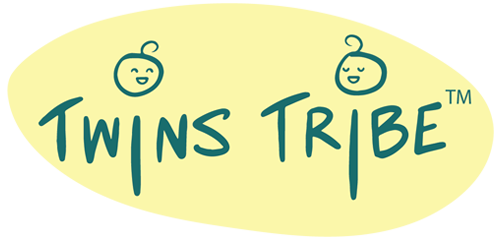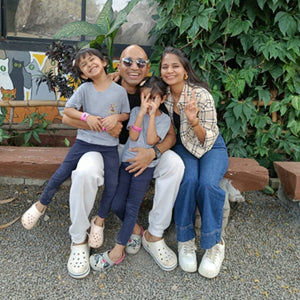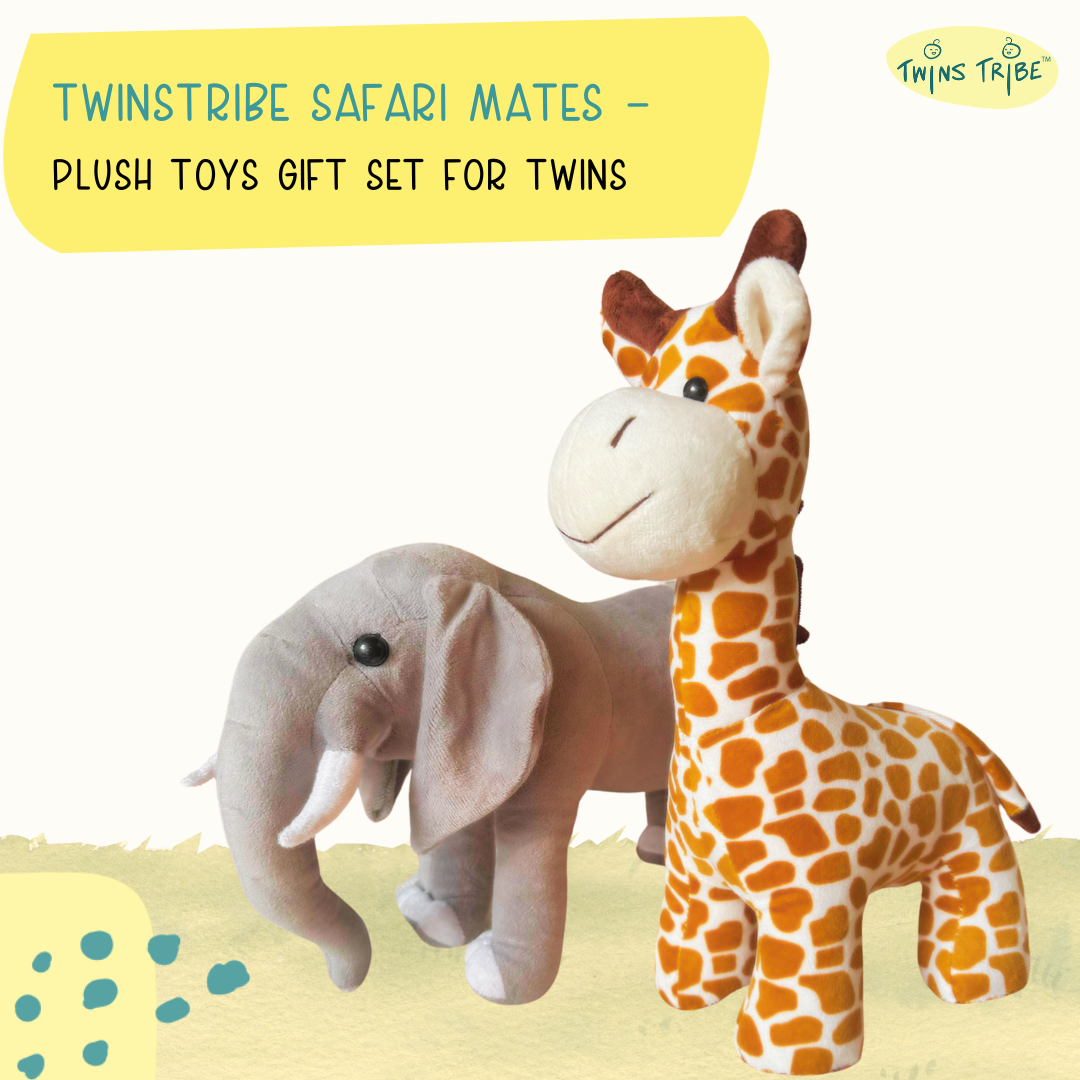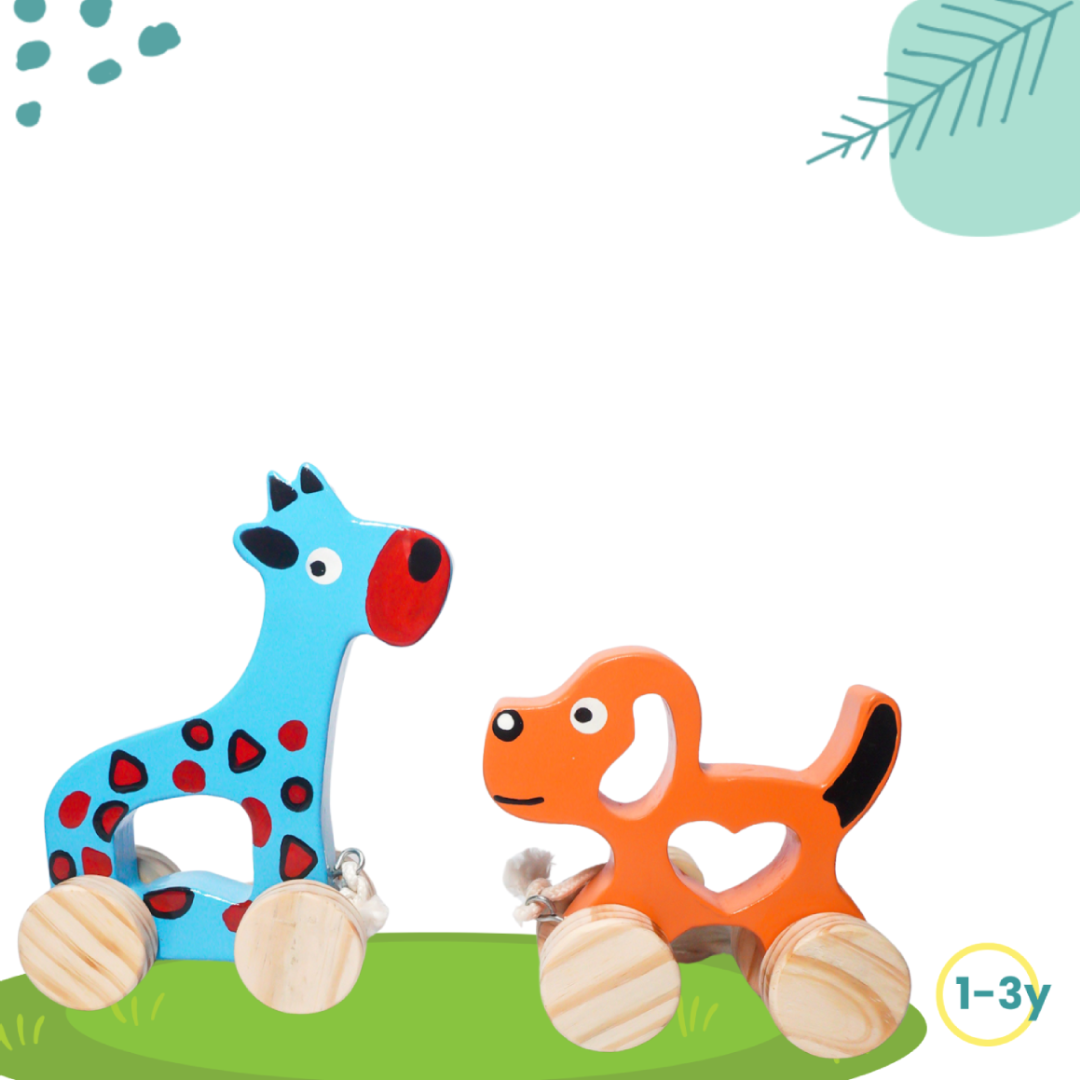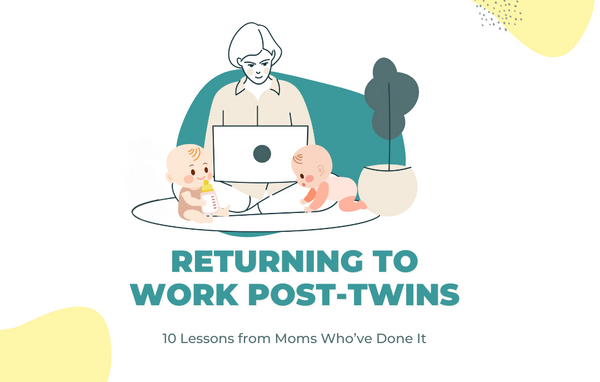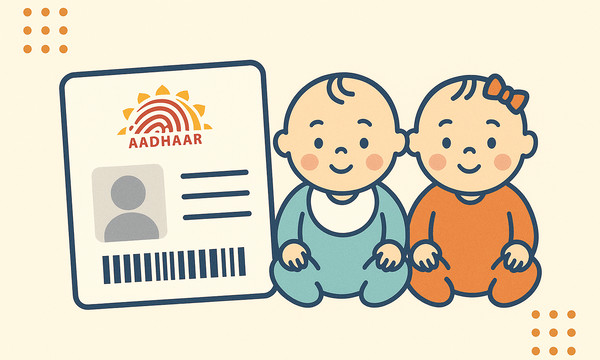
While many of us have personally gone through ‘sharing’ battles as kids with our siblings, the one that twins go through is all together another level. While the first thought that comes to our mind is of all the toys, things, and ‘STUFF’ that twins have to share, we sometimes forget that, by the design of nature, some of the other things that they ‘HAVE TO’ share are so much more valuable, precious and hard to replace.
Since the time of their conception, twin children share a womb, they share all the nutrients within the mother’s body, they share their mother and her precious breastmilk and have to continue sharing their parent’s love, attention, time, physical intimacy each and every day. That can be quite a lot for a child. Hence to begin with, as much as it is the need of the hour (please share and stop your sibling from crying!!) I really feel we need to cut our twin kids some slack in this department!! 🙊
There can be pros and cons of having twins when it come to the topic of sharing:
Pros:
- Twins have a deep bond with each other, so gradually as they get older its little easier for them to learn to share things with each other and play together. That becomes really helpful for the parents since kids learn how to keep themselves busy with each other for a significant amount of time.
- Sharing somewhere comes little more easily to them…eventually!! 😊
- They learn the social skills required to manage relationships with others in a way that is mutually comfortable and respectful. They learn better that in order to play, have fun and be in a happy space, we need to share, take turns, and make sure others’ needs are also taken care of.
Cons:
- Until they grow up to that age when they are mentally and emotionally capable of sharing, it can be really difficult for the parents to manage the twin dynamics.
- The times when both the kids want to be with the same parent can be quite a difficult situation for parents to solve and go through emotionally.
- The constant fights that happen all day long since both the children want the same thing at the same time gets quite harrowing to manage.
- Parents can try to arrange for two sets of most things as much as possible to make their life easier and reduce conflicts. However, it not only gets expensive, but also stressful sometimes since we do not always get two of exactly same pieces for everything.
- Sometimes people get different gifts for the kids and that leads to a different challenge or get only one thing for both the kids to share. Most of the times, I just had to keep that item in the storage – to be used when kids grow up or to be gifted to another child.
Needless to say, having twins presents unique challenges for the parents and its different from the case of a single child or siblings of different ages. Having said that, sharing in general is quite complicated for children to practice, whether it is with your twin sibling or with any other child.
It is really helpful & important for us to understand why do kids really find it difficult to share! What inhibits them and what changes as they grow.
Getting this perspective right is half the battle won! The other half of the battle is a long drawn one! 😊
Here are some of the reasons that I have understood based on my reading and observations:
- Understanding Ownership:
Children do not understand how can one thing belong to or be shared by two people at once. How is it possible! I am sure that as adults we also struggle with this, with respect to some things or people we really like. Like sharing your best friend, or your favorite stationery item or clothes or it could be something else for you. With kids, you can multiply that feeling with 10! 😊
- Lack of Patience:
They have not developed the patience required that is an inherent part of sharing. Patience i.e., to just wait until the other person is complete, can be daunting for small children. Even adults all over the world struggle with it in their own ways. Since kids stand at the very beginning of this journey called life, they are at the extreme left end on the scale of patience. The good news is that it does gradually gets better with age and with proper parental support and understanding.
- Confidence & Security:
They have not developed the sense of confidence and security that’s needed while sharing.
The confidence that if I have given something to someone, I will get it back. Its so interesting that at the very beginning of our life, we come with little trust and sense of security. We need a lot of support, reassurance, and evidence that if I give something to someone, I will get it back or I will get something else from them that will make me feel fulfilled or complete.
Parents and other caregivers play an extremely important here. Through their actions, words, role modelling, the way they resolve conflicts between twins, a sense of trust and security with the world and people around us is built and nurtured into the child.
- Emotional Regulation:
All the above mental and emotional reasons trigger the child when it comes to sharing. The most important thing to understand here is that, they have not yet built the ability to emotionally regulate themselves when they are triggered. It involves understanding, expressing, and appropriately responding to a wide range of feelings in a way that enables self-care and healthy social interactions.
Emotional regulation is a crucial developmental skill that children gradually acquire as they grow. It is influenced by various factors, including genetics, environment, parenting, and social experiences. Parents and caregivers play a significant role in helping children learn and practice emotional regulation by providing support, modelling appropriate emotional responses, and teaching coping strategies.
- Communication Challenges:
Up until 3 years at least they have not learnt how to leverage language to express their emotions, choices or thought process. They struggle to communicate & negotiate with other kids who are equally struggling with the same issues. Imagine being stuck in a situation in which you are not getting what you want and you are not even able to communicate properly what is going on within your mind and heart. It’s really frustrating, isn’t it!
- Empathy Development:
They have not learnt empathy. Empathy is a higher order emotion that even adults struggle with.
However, it is one of the most important and beautiful emotions that one can develop – the ability to step into another’s shoes and sense how they must be feeling in a certain situation and then act in sync and in response to that emotion. Little kids are far from being empathetic, in fact they mostly are just thinking about what they want and how to get it, no matter what!!!
It seems quite funny to me, while I am writing this. Yes, little kids can be selfish! But its innocent selfishness that I feel is programmed into them by the design of their creator to safeguard the survival of the child specially until that age where the child is really small and susceptible to danger or harm from others or the environment. It helps the child focus on what he/she needs and make noise to get it.
In order to build empathy in kids, parents need to role model empathy.
- Independent Choices:
Kids have not learnt how to make clear and independent choices. Kids are still developing their cognitive skills hence it is really difficult for them to understand the dynamics of playing with others, sharing, coordinating, negotiating, resolving conflicts etc. Hence adults need to step in many times, to help them figure out and recommend solutions that makes their play smoother and a pleasant time for all the kids.
Just how infants cannot learn to walk until they are physically ready, children cannot learn to share until they are emotionally and socially ready.
It can be helpful for parents to know that according to child psychologists this is a healthy developmental stage for toddlers, and you should not worry about it or feel the need to curb it. “It’s important for kids to establish independence and individuality,” according to them which they do by claiming their right to things.
Once we as parents truly understand these challenges children face with respect to sharing, we develop the empathy required to deal with them, to teach them good conduct and to create win-win solutions. We become better equipped emotionally and mentally to adapt to the everchanging dynamics between twin siblings. By recognizing that sharing is a skill that children are learning, parents can create a supportive environment that encourages positive behaviour, fosters emotional development, and strengthens parent-child relationships.
I hope this article helped unlock the mystery on the developmental and psychological factors behind “why kids don’t share easily!”. Read the next article – “Creating Twin-Team Harmony: Nurturing the Art of Sharing” where I will be sharing some tips and tricks that can be used to encourage sharing and managing the interpersonal dynamics between twins (and between kids in general)



